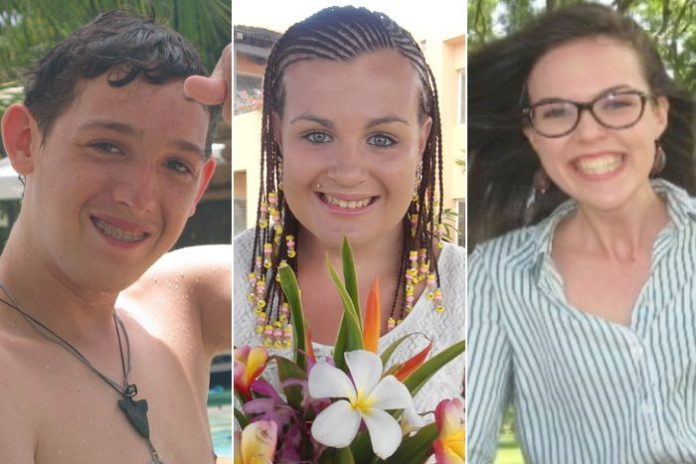
The commissioner of an inquiry into the closure of a youth mental health facility in Brisbane says her investigation will be different to the coronial inquest and look at “broader systemic issues”.
The first public hearing was held today at the inquiry into the closure of an adolescent mental health unit in Brisbane.
The previous Newman government closed the Barrett Adolescent Centre in January 2014.
Three teenagers died within eight months after the centre shut down. Their families were in court today.
The inquiry was a Labor election promise, given the day after the ABC’s 7.30 program revealed government documents had warned of the potential risk of death and need for alternate care options if the centre was closed.
Commissioner Margaret Wilson QC made her opening remarks in Brisbane’s Magistrates Court this morning, saying her investigation would be full, open, independent and sensitive.
Justice Wilson said the deaths of three teenagers were a tragedy.
She said inquiry’s task ahead was “to make full and careful inquiry in an open and independent manner into the decision to close the Barrett adolescent centre”.
“This Commission of Inquiry’s task is different from the coroner’s,” she told the hearing.
“This is an inquiry into the decision to close the centre and broader systemic issues. This commission must investigate the grounds for the closure decision, and in doing so examine the information, material, advice, processes, considerations and recommendations that related to or informed the decision and the decision-making process.”
The retired Supreme Court and former Mental Health Court judge told the hearing the inquiry will also aim to make recommendations for future mental health facilities for young people in Queensland.
Justice Wilson said the inquiry would deal with sensitive issues surrounding mental illness.
“The commission will do all it reasonably can to respect that sensitivity and to avoid compromising welfare of young people with mental illness,” she said.
“This commission may make recommendations arising out of the evidence, considerations or findings of the inquiry into any of these matters, including recommendations for clinically appropriate models of care for intensive mental health services to young people with severe and complex mental illness.”
Justine Wilson then heard applications for leave to appear before the inquiry.
She granted mothers of teenagers, doctors and nurses and the former director of the Barrett Centre leave to appear at inquiry.
Opposition Leader and former health minister Lawrence Springborg was also given leave to appear.
The hearing has adjourned, with the next public hearings to begin on November 16 for four weeks.
Mother ‘looking for changes’ to help young people
Speaking outside the hearing, the mother of one of the teenagers who died, Justine Wilkinson, said she was hoping the inquiry would deliver results.
“We’re looking for changes to be happening because they’re still not happening for young people with mental health issues,” she said.
I’m not so much interested in people being brought to retribution for wrong decisions, or callous decisions or whatever, but I’m very interested in looking somehow or other at the government processes being exposed for what they are, and ways that they can be done better.
Justine Wilkinson
“I don’t know that anything has substantially changed and we really need change because there are far too many deaths by suicide each year.
“To think that we still don’t have a centre where these children can be protected is just horrifying really.
“We need somewhere where they can be protected in an in-patient situation because they are so ill and so unwell that they can not be managed at home without serious risk of committing suicide.
“With our children, it’s not leukaemia where you either get well or whatever, our children are at risk of taking their lives and that’s what’s happened with my daughter.
“She just got so hopeless that there was not going to be sufficient help for her and that she would never get better, that she took her own life out of hopelessness, and that is just such a sad, sad, sad thing.”
Ms Wilkinson said she hoped the inquiry would really hope “we get to the bottom of things”.
“I’m not so much interested in people being brought to retribution for wrong decisions, or callous decisions or whatever, but I’m very interested in looking somehow or other at the government processes being exposed for what they are, and ways that they can be done better,” she said.
“And of course ultimately I’m hoping that there will be widespread recognition that we need a proper facility for these children.
“Mental health has always been treated as something really special and very different and really that’s got to change – it’s got to come on a par with things like somebody having cancer or leukaemia, and the services that are available there, and the attitudes towards it.”
It was also an emotional day for Jo Oliver, whose son Will Fowell took his own life too after the centre’s closure.
“Hard to be here but also interested to see what’s going to be following on,” she said.
Ms Oliver hopes the inquiry prevents other parents from going though the same thing.
“That they do open up another centre, and that there is a tier three, and that they do support mental health in a huge way, because basically it seems to be put under the carpet,” she said.
The $9.5 million Commission of Inquiry will look into the decision to shut the facility.
It will also examine the transition arrangements provided for patients, their families and staff after the doors were closed.
It may also make recommendations for future models of care for young people with severe mental illness.
The inquiry is due to run until January next year.

